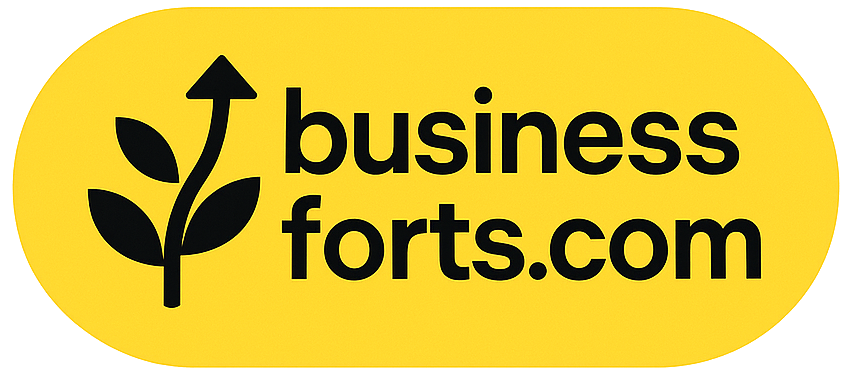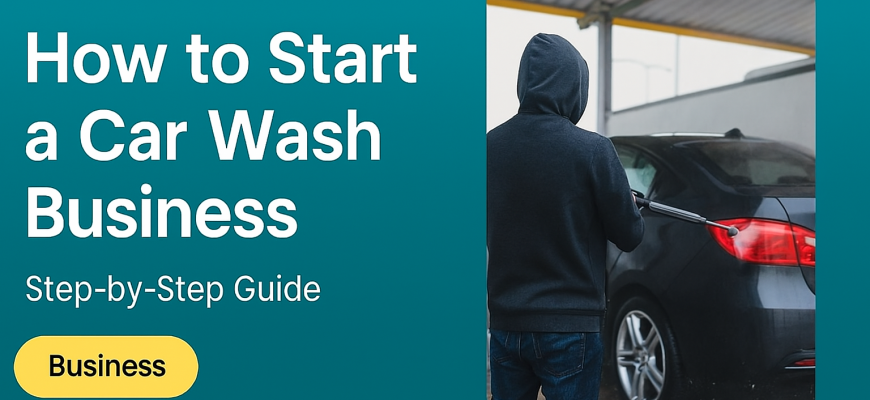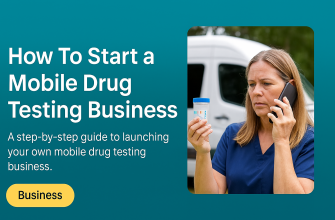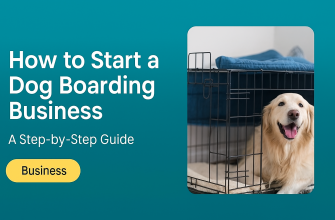Launching a full-service car wash and detailing business can be an empowering opportunity for women entrepreneurs. The auto care industry is booming: nearly 80% of American drivers now use professional car wash services, and in North America retail car wash sales top about $15 billion annually. In the U.S. alone, roughly 58,000 car wash/detailing businesses generate about $14–15 billion in revenue each year. Membership programs, high-tech equipment, and eco-friendly processes are expanding the market and attracting new investment. At the same time, women entrepreneurs are making their mark: women own four out of ten U.S. businesses and women-owned businesses have grown 58% since 2007. In the car wash industry, this growth is apparent – more female leaders are bringing new skills and vision to the field. With careful preparation, you can join them. In this guide we’ll cover how to understand the market, meet licensing and financial requirements, and build a strong operation and brand so you can start smart and shine bright in the car wash business.
Understanding the Business and Market
-
Industry Demand & Growth: Car washing is a routine necessity. In the U.S., car ownership is high and consumer habits favor professional washes. The International Carwash Association reports that the share of drivers who wash at professional shops has climbed from about 48% in 1994 to nearly 80% today. Busy lifestyles and subscription plans (monthly washes) have fueled this demand, leading to steady industry growth. Industry analysts project car wash and detailing revenues could reach into the high teens of billions within a few years. Profitability is solid – average net margins in the industry are in the mid-teens and expected to approach 20% – meaning a well-run full-service wash can be very rewarding.
-
Full-Service Model: A full-service car wash goes beyond just a drive-through wash. It typically includes exterior washing plus thorough interior cleaning, vacuuming, waxing, and detailing. In practice, a full-service shop might combine automatic conveyor tunnels for the exterior with attendants who hand-dry and detail the vehicle inside. This premium model requires more labor and higher initial investment than a self-serve or basic automatic wash, but it also commands higher prices and loyalty. (By comparison, simple self-service bays can cost $15k–$25k per bay to equip, while a full-service tunnel wash often requires millions in upfront costs.) As a woman entrepreneur, you can use customer service and attention to detail as a strength – offering a polished, welcoming experience that stands out in a male-dominated industry.
-
Market Research: Before launching, study your local market carefully. Identify how many people drive in your area, the competitive landscape (other car washes, auto detailing shops, dealerships), and local trends (urban vs. suburban, weather patterns, etc.). Determine which car wash model fits best: will you focus on full-service/detailing, or offer a mix (for example, a conveyor wash plus extra detailing packages)? Understanding your target customers – commuters, families, car enthusiasts – will help you craft services they want. Consider demographics (e.g. income level, eco-conscious consumers) and find a niche. For example, many car wash owners now offer membership programs or loyalty clubs, which reward repeat customers and smooth out cash flow. Technological trends (contactless payment, online booking, LED lighting, and water-recycling equipment) are also rising, so plan for investments that keep you competitive.
-
Key Facts: The car wash market is highly fragmented, with tens of thousands of small businesses (as of 2024, about 55,000–60,000 facilities nationwide). This means there’s room for local operators if you meet community needs. Consumers are increasingly willing to pay for convenience and quality – even in an age of automation, there’s no true substitute for having someone wash your car for you. In fact, specialized hand-wash and detailing services (manually cleaning cars, interior detailing, polishing) account for about 15% of industry revenue, showing a robust market for personalized care. In short, demand is real and growing, and customers appreciate the human touch that a full-service wash provides.
Legal, Financial, and Location Considerations
-
Licensing & Permits: First and foremost, register your business and handle legal requirements. Decide on a business structure (LLC, S-corp, etc.) for liability protection and tax purposes. Obtain a federal Employer Identification Number (EIN) and a state sales tax permit. Then get the necessary local business licenses – in many U.S. cities this is a simple few-hundred-dollar fee. Don’t forget insurance (general liability, workers’ comp if you hire staff) and any signage permits. A major concern for car washes is environmental compliance: because wash water contains detergents and grime, most states require a permit or system for handling wastewater. Check local environmental regulations, which may force you to route wash-water into a sewer or install a recycling/pretreatment system. For example, the U.S. EPA and many states treat car wash wastewater as industrial discharge, so you may need a utility or state environmental permit. Factor these compliance costs into your budget and timeline.
-
Startup Costs & Funding: Opening a full-service car wash is capital-intensive, but knowing the ballpark figures helps you plan. Industry data show that starting a standard full-service wash often requires on the order of $1.5–3 million in total investment. (This covers building construction, quality wash equipment, vacuum systems, and initial supplies.) Smaller automatic or express washes can be cheaper – a basic single-bay automatic might start around $250,000, while a modest self-serve bay setup might cost just tens of thousands plus land. Of course, land prices vary widely. In general, plan for all-in costs: site acquisition (buy or lease), construction/renovation, specialized equipment (e.g. conveyors, high-pressure washers, vacuums), and three months of operating expenses as working capital. One analysis found the high end of full-service wash startup costs can exceed $3 million.
To fund your venture, consider multiple sources: personal savings, bank loans, SBA (U.S. Small Business Administration) loans, or investors. Women entrepreneurs often have access to special funding resources (women’s business centers, crowdfunding platforms, and grants). Prepare a detailed business plan with pro forma financials to show lenders or investors. Estimate revenues conservatively: even a moderately busy full-service location can gross several hundred thousand dollars per year per lane, given average wash prices and traffic. Remember that profit margins are healthy: typical car wash net margins are around the mid-teens percentage. (For example, $100,000 in sales might yield $15–$20K in profit.) High-volume washes or adding detailing add-ons can push margins even higher. In short, with solid planning and efficient operations, you can achieve a strong return on investment.
-
Choosing a Location: Location is critical. Look for high-traffic areas where cars naturally pass, such as near shopping centers, commuter routes, or alongside gas stations and auto shops. Visibility and easy access drive customers to stop by. Check zoning rules – most cities have special zoning for car wash businesses. Also ensure utilities are adequate: you need a reliable water supply, sewer/septic connections, and power. Some locations may require upgraded water pipes or drainage. Budget for site-specific improvements: for example, grading or repaving the lot, installing car wash drainage pits, or extending power lines. One car wash guide notes that costs for water and drainage hookups and other site prep can add up, especially on undeveloped land. Don’t forget signage: clear, attractive signage will make your wash easy to find. Finally, survey local competition – even if an area feels saturated, consider how your service (brand, quality, hours) might stand out. Sometimes a second car wash in a busy market can thrive if it offers something unique (like 24/7 access or loyalty pricing).
Building Your Operations and Brand
-
Define Your Services: List the specific wash packages and detailing services you’ll offer. A full-service menu might include a basic wash (exterior wash + vacuum), a mid-level package (plus wax and interior cleaning), and premium detailing services (such as upholstery shampoo or paint protection). Price these packages based on local market rates and your costs. Consider add-ons (tire shine, engine cleaning, headlight restoration) that boost per-car revenue. Offering subscription memberships or multi-wash discounts can encourage repeat business.
-
Staffing and Training: Because full-service washes rely on attendants, hire friendly, reliable staff and train them well. Emphasize safety and consistent quality (e.g. how to use equipment, proper cleaning techniques). Empower your team with good management practices: set clear goals, hold brief daily meetings, and recognize top performers. Many customers appreciate a clean, professional staff, so consider uniforms and a small break area. Encourage employees to upsell packages politely and gather customer feedback – building a customer-service culture is a leadership skill that will pay off.
-
Customer Experience: Make the wash experience pleasant and convenient. Ensure your facility is clean, well-lit, and easy to navigate. Display prices and step-by-step instructions clearly. If customers wait on-site, provide amenities like seating, vending machines, or Wi-Fi (even a free coffee station can leave a strong impression). Prioritize a hassle-free payment system: modern POS systems, contactless payment, and online booking for detailing services can set you apart. Consider offering a loyalty program (e.g. tenth wash free, or a punch card) or a subscription plan (unlimited washes for a monthly fee). These keep customers coming back and improve cash flow.
-
Brand & Marketing: Stand out with a strong brand identity. Choose a catchy name and professional logo that conveys quality and trust (many entrepreneurs highlight their status as a woman-owned business to attract community support). Develop a consistent visual style (colors, fonts) and tone. Build an online presence: a simple website with your services, prices, and hours is essential. List your business on Google My Business and local directories so people can find you. Use social media or local ads to announce your opening and promotions. Partner with community businesses – for instance, local car dealerships, real estate agents, or event organizers – who can refer customers. Host a grand opening with special discounts or charity tie-ins to generate buzz. Remember: marketing is ongoing. Ask satisfied customers to leave online reviews, and network in local business groups or women-entrepreneur meetups.
Start Smart and Shine Bright
Starting a full-service car wash is a big endeavor, but it’s one that many women have successfully mastered. As you launch this business, lean on preparation and your leadership strengths. Build a solid plan, secure the right permits and financing, choose a strategic location, and then focus on excellent execution and branding. Challenges like equipment maintenance or staffing will arise, but treat each as a learning opportunity. With persistence, your passion for quality service and community will turn this venture into a thriving enterprise.
By stepping confidently into the car wash market, you’re not just washing cars – you’re steering your own success story. The U.S. car wash industry is growing, profitable, and ready for innovative owners like you. Take advantage of industry trends (like eco-friendly systems and membership plans) and your unique vision. Before you know it, that corner lot will be more than just a wash – it will be your brand shining bright in the neighborhood.









